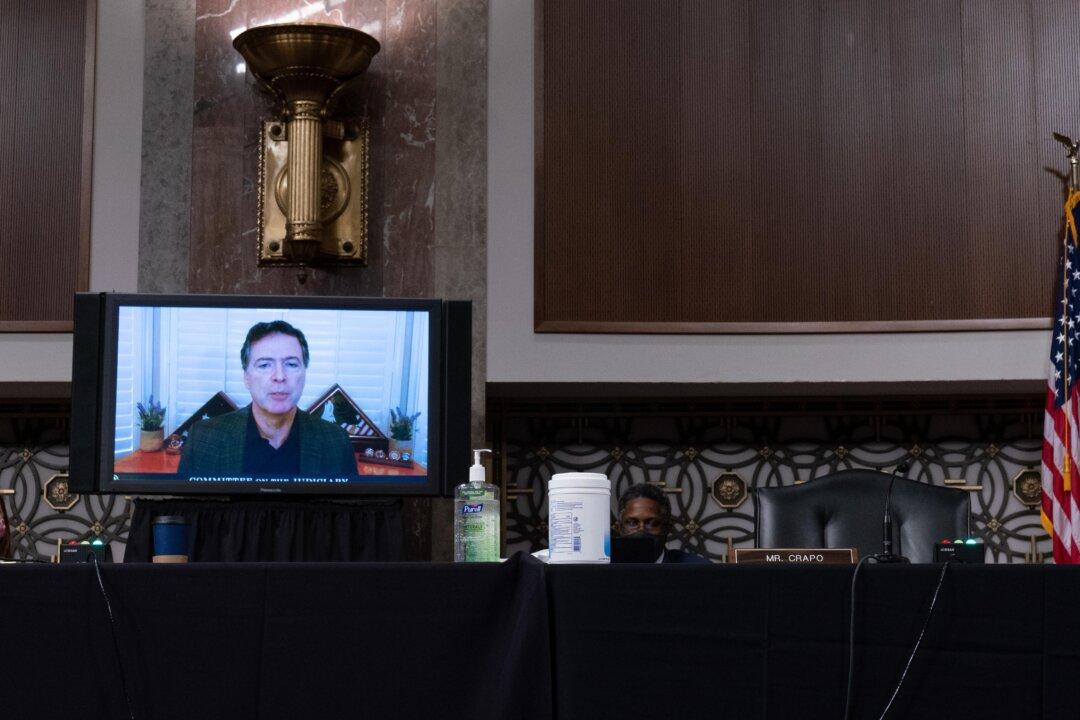Former FBI Director James Comey testified to Congress that he didn’t know or didn’t remember when asked numerous questions about issues with the investigation on alleged collusion between the Trump campaign and Russia. Comey presided over the probe in 2016 and 2017.
The Russia probe was heavily criticized by the Justice Department’s inspector general (IG), in major part for using unsubstantiated and contradicted information from the infamous Steele dossier to get a spying warrant on former Trump campaign aide Carter Page. The dossier was funded by the Democratic National Committee (DNC) and the campaign of former Secretary of State Hillary Clinton.





